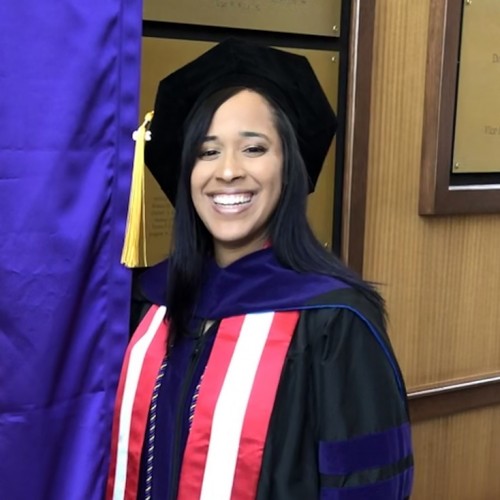
She's on the Case: Veronice Santana '13
“There was no one in my family who was a lawyer. I don’t think I even personally knew a lawyer, until I went to Bay Path and met Elizabeth Dineen, my professor and greatest mentor.” Veronice Santana recounts. “My roommate and I would say to each other, ‘We want to be Liz Dineen when we grow up.’”
Visions of renegade police work and crime lab heroics were what initially lured Santana to criminal justice courses, but as a bona fide lawyer, she’s quick to admit, “That’s not how it works.”
It was in Professor Dineen’s class, Criminal Evidence, that Santana got a glimpse of the criminal justice system—and saw it was a far cry from the dramatic interpretations delivered by CSI and Law & Order.
“The CSI effect is a real thing,” she notes. “It actually influences jurors when they’re watching a trial and asking themselves, ‘How come there aren’t any fingerprints? Where’s the DNA sample?’ Not only is that not always available during a trial, it’s actually pretty rare to have DNA evidence.”
For Santana, reality took firm hold when Dineen introduced her class to the Innocence Project, an organization of lawyers and policy reformers dedicated to exonerating those who’ve been wrongly convicted, a population that is predominately poor, minority and underrepresented in state and local government.
“The Innocence Project presented an actual goal, a concrete thing to aspire to. I remember thinking ‘I would love to work for the Innocence Project one day.’ And that solidified my decision to pursue a legal career,” she says.
At Bay Path, and then as a law student at Western New England University School of Law, Santana interned solely with defense attorneys. She now finds herself on the other side of the equation as a District Court prosecutor, a position she eagerly accepted as an opportunity to be “thrown into court right at the beginning and get hands-on, intense experience.”
She still cites Dineen’s class and Actual Innocence, the book published by the Innocence Project, which profiled wrongly convicted individuals and highlighted issues in the criminal justice system, as tremendous sources of influence and perspective.
“It’s an adversarial system. The most important thing is no matter what side you’re working on, if you do your job right, justice will prevail.”
The child of Puerto Rican parents raised in Hartford, Connecticut, Veronice Santana grew up speaking Spanish as her first language. After attending community college, she transferred to Bay Path and was the first in her family to obtain a bachelor’s degree, before earning her Juris Doctorate from Western New England University School of Law in 2019. She is an Assistant District Attorney, serving as the District Court prosecutor for the Northwestern District Attorney’s office, which oversees cases in Hampshire and Franklin Counties and the town of Athol, MA.
